颈部康复拉伸机的设计(含CAD图,SolidWorks,STEP三维图)
无需注册登录,支付后按照提示操作即可获取该资料.
颈部康复拉伸机的设计(含CAD图,SolidWorks,STEP三维图)(论文说明书10000字,CAD图纸9张,SolidWorks三维图,STEP通用三维格式)
摘要:康复治疗(rehabilitation treatment,rehabilitation care)是康复医学的重要内容,是使病、伤、残者身心健康与“功能恢复”的重要手段,也是病、伤残综合治疗的一个组成部分。康复治疗常与药物疗法、手术疗法等临床治疗综合进行。
本次的毕业设计题目是颈部康复拉伸机的设计,本文介绍了颈部康复拉伸机的结构组成、工作原理以及主要零部件的设计中所必须的理论计算和相关强度校验,该颈部康复拉伸机的优点是高效,经济,并且安全系数高,运行平稳。本文详细介绍了颈部康复拉伸机的结构方案分析、设计流程和计算流程,并进行了必要的动力系统总体结构设计。
关键词:颈部康复拉伸机;科学技术;现状;设计;
The design of neck rehabilitation drawing machine
Abstract:The environment of global economic development, China industries affected by other countries advanced technology at the same time, foreign enterprises and brand spread to more and more Chinese has become an opportunity.
Cap pressing machine in industry through a variety of ways have been working with the relevant technology, and constantly improve their own strength and core competitiveness, and narrow the gap with developed countries. In the new market demand, update the sleeve pressing machine is a pressing matter of the moment. The production of pipe pressing machine equipment manufacturing enterprises to fully tap the potential of the market, vigorously develop the sleeves of large low cost pressing special machinery and equipment, plays a positive role in the evolution of automatic assembly, the assembly of mechanical equipment.
Key words:pneumatic manipulator; cylinder; pneumatic loop; Fout degrees of freedom.
4 颈部康复拉伸机结构设计
4.1设计方案介绍
本次设计的颈部康复拉伸机采取的方案是:利用手轮驱动齿轮转动,升降杆下端是齿条,这样就构成了齿轮齿条机构,如是带动升降杆升降,升降杆顶端装有用于颈部康复的医疗器械,当人坐在椅子上面的时候,可以通过摇动手轮来控制医疗器械的高度,从而来达到康复颈部的目的,其具体方案布局图如下:
4.2 选择座椅材料
轴向拉伸(tension)与压缩(compression)是杆件变形中最简单的形式。在机械和仪器中,承受拉伸和压缩作用的杆件最多,在座椅的过程中,联接常常用到螺栓,被拧紧后,螺栓就承受拉力。分析受轴向拉伸或轴向压缩作用的杆件的受力情况可知,杆件拉伸和压缩的受力特点是作用在杆件两端的两力大小相等、方向相反,且作用线与杆件的轴线相重合。其变形的特点是杆件沿轴向伸长或缩短,而其横截面变细或变粗,
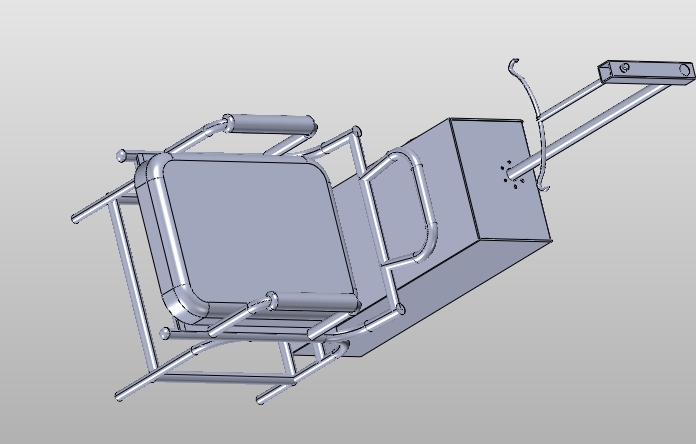
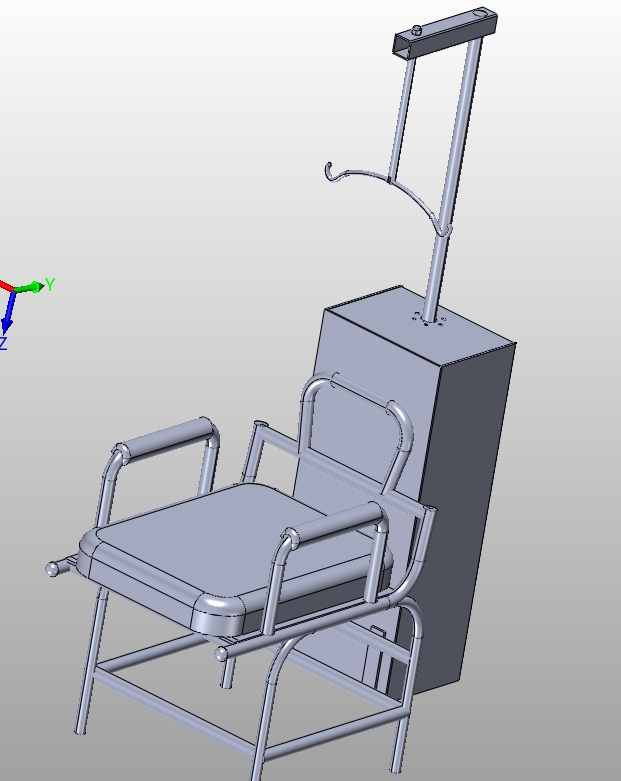
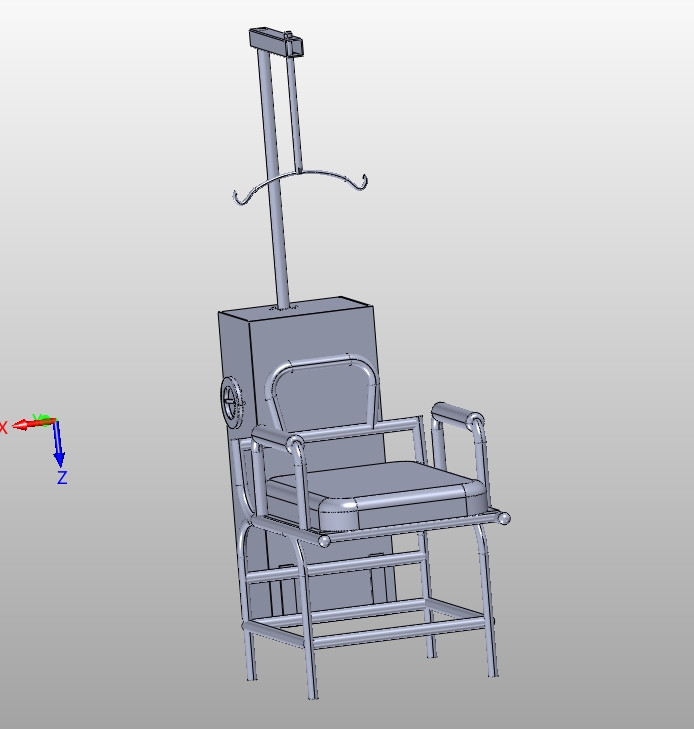
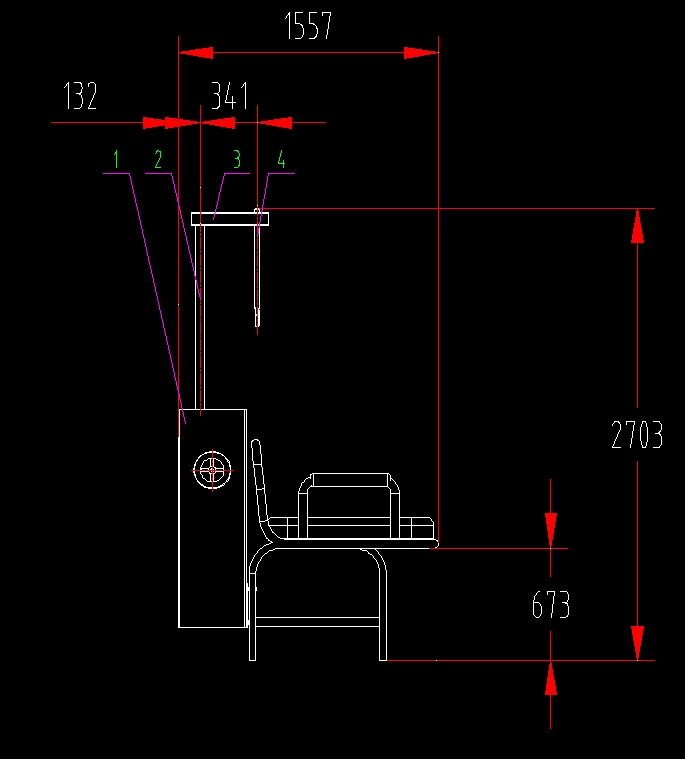
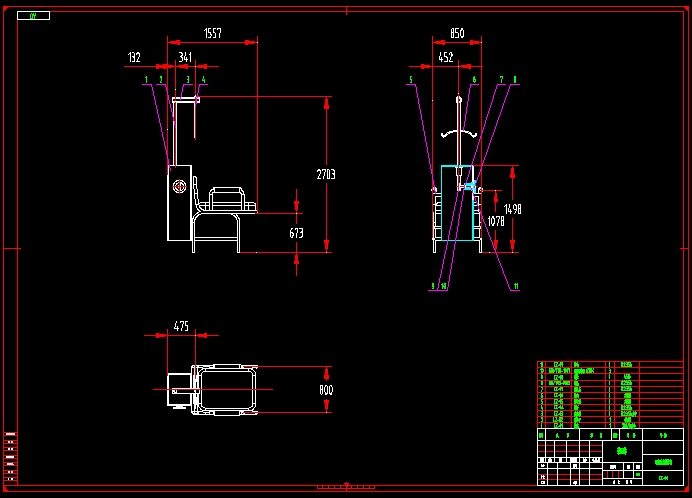
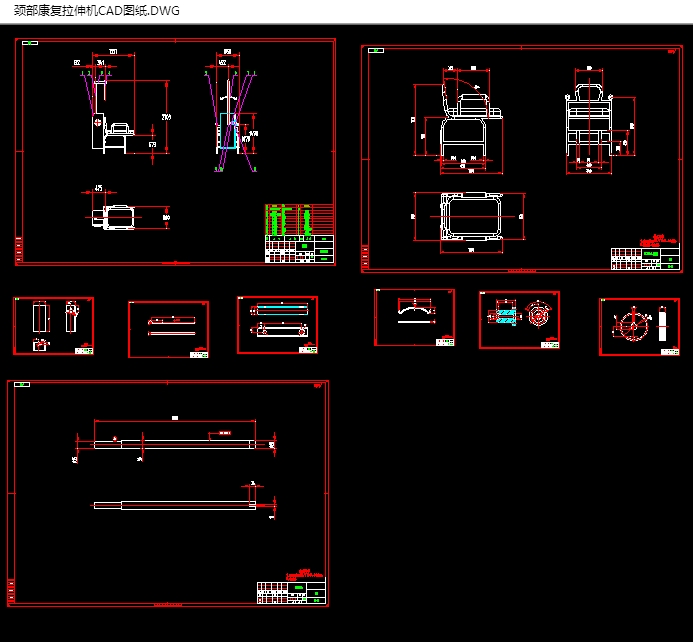

目 录
绪论 1
1. 康复医疗介绍 2
2. 康复医疗的现状 3
3. 本课题的主要研究内容 5
4. 颈部康复拉伸机结构设计 7
4.1 设计方案介绍 9
4.2 选择座椅材料 11
4.3 确定座椅材料 13
4.4 齿轮齿条传动设计计算 16
4.4.1 齿轮的设计计算 18
4.4.2 齿条的设计计算 19
4.5 轴承的设计计算 20
4.6 升降杆的设计计算 21
4.7 轴承的强度校核 22
4.8 吊杆的强度校核 23
5. 颈部康复拉伸机的三维建模 24
5.1 座椅的三维建模 25
5.2 手轮的三维建模 25
5.3 升降杆的三维建模 26
5.3 颈部康复拉伸机的三维建模 27
6. 三维软件设计总结 28
结论 29
参考文献 20
致谢 31
